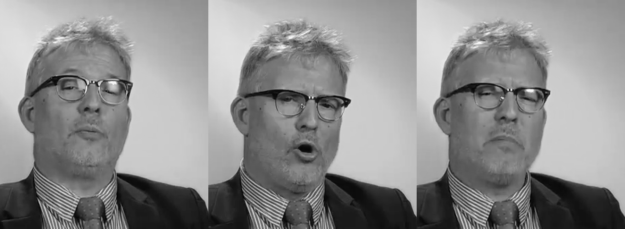A CN FAQ
Do you nod mindlessly when water-cooler chatter turns to the newest ‘Lew’ buzz? Are you sick of pretending to have an informed take on ‘Steve’s’ latest retracted masterpiece?
You’re not alone! The Berg now answers the top questions asked by people just like you.
—CN editorial team
General questions
Who is Steven, Stephan, Stephen, or Steve Lewandowsky?
SL: Hi, I’m Stevan Lewandowsky, a Professor of Cognitive Psychology in Bristol. I used to be a Winthrop Professor* at the University of Western Australia [UWA].
My research addresses the distinction between skepticism, cynicism, denial, denialism, pessimism and sardonicism.
Thank you for your interest in my work—and thanks to ClimateNuremberg for offering to host this FAQ. Feel free to ask me anything reasonable.
*The next rank after regular Professor.
Where have I heard Lewandowsky’s name before?
CN: You may know Lewandowsky as the scientist behind ‘NASA faked the moon landing—therefore climate science is a hoax‘ [LOG12] or the 57-page magnum opus ‘Recursive Fury,’ a paper the UWA legal department gushes it is “entirely comfortable” with.
Or perhaps you’ve read Dealing With Bullies, the guide to dealing with skeptics. The success of this slim manual amazes even Lewandowsky, who quips, “it has now been translated into virtually all languages short of Swahili.1“
Stephan is hard at work on a new handbook, Are You Being Plotted Against?, which he envisions “as a kind of prequel to the events of Dealing With Bullies.”

Something must be wrong [MbW]: Lewandowsky’s latest work on risk suggests the low climate sensitivity espoused by some ‘skeptics’ would require Princess Di to be alive and dead… simultaneously! “Something must be wrong [MbW] with them,” he believes. “Mentally.”
What do we know about Lewandowsky personally?
CN: Being a climate academic is dangerous. Scientists have had dead rats left on their doorsteps by suspected conservatives who then speed off in yellow SUVs.
And psychologists are at just as much risk as proper scientists, so Lewandowsky is understandably guarded.
What we do know is that he got his undergraduate degree from Washington College, Chestertown, MD and a PhD from Toronto University. In 1995 the unexpected death of a Winthrop Professor led the people of Western Australia to offer Lewandowsky the coveted Winthrop Chair. He was reluctant to migrate, but the citizenry wouldn’t take no for an answer and their piteous entreaties eventually wore Lewandowsky down.
(Some confusion has been caused by his remark that he moved Down Under “in search of adventures and great weather.1” This was almost certainly meant as a sort of joke, given that Western Australia’s climate is no better than Maryland’s—if anything, it’s warmer.)
In 2013 an escalating campaign of victimization by climate deniers finally forced Lewandowsky to move to the UK, where he found steady work as a dock laborer but was soon demoted to Professor of Cognitive Psychology at Bristol University. Unfortunately the move failed to throw his persecutors off:
Carmen Lawrence then made an aside that probably puzzled many—and worried more than a few: “Stephan Lewandowsky just emailed to advise he is still being pursued by climate deniers in an extravagant way.2“
Stephan has one son, John Lewandowsky-Oreskes, a pro-science communicator who blogs under the more manageable nom de plume John Cook.
What are Lewandowsky’s personal interests?
CN: In his spare time Lewandowsky enjoys rock climbing, trainspotting and maintaining his blog about the unique challenges of being an autistic psychologist.
It’s been two years now—when is the Swahili edition of ‘Dealing’ due out?? Any updates on its progress?
SL: [Sighs.] Look, if it were up to us, that would have been the very first translation. Life is no barrel of joy in Burundi, Rwanda, Kenya, Mozambique, the Democratic Republic of Congo, Tanzania or Uganda if you’re being climate-bullied.
So yes, we feel your pain. Please be patient.

Credible: The climate debate is ultimately about trust, says Lewandowsky. He ends all his lectures with the same question: “In whose hands do you want your future?”
What are Lewandowsky’s research interests?
CN: Lewandowsky’s early work focused on the science of disinformation, dishonesty and deception. This led naturally into the climate-science world, where he now works full-time as a climate psychologist.
He lists his cognitive-science interests as:
- the effect of false information,0
- the effect of fallacious arguments and
- the effect of perceived consensus on acceptance of ‘the science’ [sic].3
His climate-psychology interests include:
- the little-known ‘propaganda war on science and scientists,4’
- ostensible think tanks and their ‘chimerical pseudo-scientific conferences,5’
- uncovering the ‘active, vicious, and well-funded campaign of denial that seeks to delay action against climate change,5’
- the ‘thought-control machinery of the right-wing media,6’
- the ‘intimidation and censorship tactics of the denial industry,6’
- climate deniers and their ‘less visible means of attack6,’
- their ‘subterranean war on science,7’
- various ‘activities beneath the surface, hidden from public view,8’
- paranoid ideation
- and how it’s linked to unscientific thinking.

Mister sensitivity: Loud conversations cause “physical pain,” Lewandowsky complains—as if he needed yet another reason to avoid human company.
What does ‘ideation’ mean?
CN: Thinking.
Stephan, can you say a bit about the process of writing a paper like ‘Moon Landing’ or ‘Recursive’?
SL: An article [in our field] typically starts with an idea about how people think, act or respond to questionnaires. But remember, cognitive science is a bit like real science in a way: it’s not about having ideas, it’s about proving they’re true.
So once you’ve thought of a title (say, ‘Free-market fundamentalism predicts climate denial’), obtained funding, and so on, your challenge then becomes one of experimental design: what do you have to do to ensure subjects behave the way you predicted?
And to achieve that… well, you’ll really need a doctoral education in psychology. That’s why psychology is so hard—and also why it works so well!
The denialist community must really appreciate Lewandowsky’s help in understanding its problems. How have deniers shown their thanks and support for his work?
SL: I’m sure the majority of ‘skeptics’ are grateful. Unfortunately though, a few bad apples have reacted just the opposite way.
I often worry that the behavior of this minority of ingrates could be used to tar the whole [denialist] population. Hence my personal policy: never dwell on the negative.
If, say, a climate denier says something rude to me—in the literature, on the street, wherever—I’ll write one or two papers on it, tops, then move on.
The key is, never let a bully know how much they’re getting to you.
Any kind of reaction on my part would only make me look insecure.
Which is exactly what bullies want. I assume. Who really knows what anyone is thinking?
CN: Just to expand on Stephan’s answer a bit, one of the most important articles bullies have forced him to write is ‘The Subterranean War on Science.7’
In this piece, published by the APS, he details various stratagems pointing to the existence of a major clandestine plot against science—perhaps the most chilling of which is the use of insincere or “satirical” websites. Lewandowsky himself was entrapped by one called Verdant Hopes—an ordeal which he eventually found the courage to speak out about:
Other attempts at intimidation have involved the solicitation of potentially compromising information from [me] by a non-existent internet “sock puppet” whose unknown creators pretended to be victimized by climate deniers—and who then splattered the private correspondence on the internet.7

Magic bullet: Deniers sometimes try to speak to Lewandowsky, but “nine times out of 10” he finds he can scare them off with a “killer argument” he heard on Robyn Williams’ show: “What if I told you pedophilia is good for children?”
What on earth would possess a high-earning, internationally sought-after academic to spend his time understanding deniers when they repay him with such ingratitude?
SL: The real question, I think, is why more of us aren’t working on the problem!
Denial now affects half the community—it’s the first psychopathology ever, in human history, [which] you’re just as likely to have as be free of. There are no precedents for such a pandemic.
But here’s the tragedy: the act of rejecting all of modern science is just so bizarre, so incomprehensible to us, as academics, that the [psychology] profession simply chucks denialists in the Too Hard basket.
Well, that’s not OK with me. Not one bit.
No human being belongs in a Too Hard basket (however abhorrent we find them).
My peers never could understand how tolerant, even empathetic I am towards deniers.
Maybe it’s about growing up as an outsider myself. I know what it feels like in the Three Percent. Trust me, kids are cruel when you can’t read basic social situations, modulate your voice like a “normal” person or tell the difference between parody and a literal statement.
In high school there was exactly one person I could relate to: Sartre. L’enfer, c’est les autres! And this—paradoxically?—is probably why I will never, can never, give up on denialists.
To quote Einstein, a scientist who’s often been compared to me:
My passionate sense of social justice and responsibility has always contrasted oddly with my lack of need for direct contact with other human beings and communities9.
0 E.g. Misinformation and Its Correction: Continued Influence and Successful Debiasing
1 Science AMA Series: I’m Prof. Stephan Lewandowsky, AMA!
3 The pivotal role of perceived scientific consensus in acceptance of science
4 Bitten by a sock puppet, but the climate is still changing
5 The Morality of Unmasking Heartland
6 Stephen Lewandowsky: Confronting the Anti-Science Thought Police
7 The Subterranean War on Science
8 Recursive Fury goes recurrent
9 Albert Einstein, The World As I See It
On the ‘Moon Landing’ paper [LOG12]
Why does the ‘Moon Landing’ paper matter?
SL: Scientists had known for a long time—though there was no evidence for it—that conspiracist ideation was associated with the rejection of climate science.
Yawn, right? Not exactly news.
But what I wanted to know was:
To what extent could we “demonstrate” this without actually interacting with deniers?
Make no mistake, this wasn’t personal. It wasn’t about my own crippling shyness. It wasn’t even about breaking down the methodological and procedural barriers that have kept the practice of psychology off-limits to the empathically impoverished, socially tetanic and vigilantly incurious for far too long.
OK, maybe it was. But it was also about making cognitive science itself so much easier; so much more efficient. For everyone. If our study worked, it would be the “proof of concept” for an idea I’ve championed for years, in spite of just about every psych textbook ever printed:
“Engagement, in my view, is not a solution but just an enormous waste of time.10″
It’s all well and good possessing the rare genius to come up with a postulate like that in the first place, but does this iconoclastic, revolutionary insight actually work in practice?
CN: That’s the best part, scientifically: yes! When the authors crunch the answers from their—largely anti-denier—respondents, guess what? It looks a lot like the stuff deniers probably say.
The UK’s Royal Society grasped the value and novelty of LOG12 straight away.
“It is this Society’s view that the remote procedures perfected by Mr Lewandowsky light the way,” it declared, “by which the behavioral sciences (so called) might at last shake off the narrative sickness. This Fellow has reminded us of that Law unto which all true study is consecrated: Nullius In Verba—which means Don’t Talk To Anyone.
“In Mr Lewandowsky’s hands, the humble Internet-based survey has restored Man to his rightful place in science: the inside of a Skinner box.”
SL: Occasionally someone makes an almost valid criticism of LOG12: that we failed to find a bigger [denialism⟷conspiracism] association. But the “weakness” of the effect is easily explained: the data was contaminated by the participation of actual deniers.
In our next paper we’re going to bypass the entire problem by studying a population that doesn’t contain any deniers—Australian university staff—and soliciting their model of denialist thought. The preliminary data we’re getting with this simple hygienic improvement are already encouraging. They’re a lot closer to the way we think deniers really think.
What does the denialist community have against LOG12?
SL: Honestly? Nobody knows. Three of my doctoral students are doing theses on this as we speak!
It is, of course, self-explanatory why normal people would be miffed if you dismissed their beliefs as “conspiracist ideation”—especially if you’d never met—but it’s not clear why climate deniers appear to feel exactly the same.
Far be it from me to downplay the very real inroads we’ve made into the denialist mind thanks to my research, but the sad fact remains: the psychology of unbelief is still largely opaque to science.
Is it my imagination, or did the cream of denialist bloggery go off on a sort of wild goose chase at one point, desperately seeking an email Lewandowsky never wrote… or something? It was hilarious, in my brain.
SL [giggles]: Guilty! I think it was [confederate] Charles [Hanich] who came up with the idea, which seemed like a rather elegant protocol to tease out just how neurotic some of these [inaudible]-wits could be. [Intermittent giggling.] There’s nothing interesting about the prank itself—it was your basic virtual switcheroo [unintelligible] fascinating was how the complete denier intelligentsia proceeded to scream, right on cue, that we’d tricked them.
I guess we must be the world’s most naïve academics, because [paroxysm of giggling] we were genuinely expecting one or two of the anti-science paramilitary leadership’s most elite minds to point out the alternative hypothesis that maybe—just maybe—we were only pretending to trick them.
You know, for science.
Nope. [Gelastic convulsion.]
So much for ‘skepticism!’
CN: Perhaps the most comical, absurd, Orwellian/Kafkaesque thing about their allegations, of course, is that the word ‘trick’ wouldn’t even entail anything duplicitous or dodgy anyway!
All it means is “a clever way of doing something.” Yet, for various propagandistic motives of strictly historical interest, the denialist disinformation machine has been working around the clock since late 2009 to sow public confusion about what the word does, and doesn’t, denote and connote.
And regrettably these well-funded, orchestrated efforts have now tricked huge swathes of the public into believing there’s something nefarious involved in the concept “trick.”
Bullshit! (As Al Gore would say.) That’s nothing but a ruse. A ploy, a device, a fib; an artifice, wile, dodge, deception, subterfuge, chicane, swindle, con, scam, gyp, flimflam, bunco, grift, lurk, rort, schlenter, flanker, shift, fetch, leg-pull or put-on… for want of a better word.
They fooled the American sheeple.
10 Comment on ‘There is a real climategate out there’ in reply to commenter Ben Heard

Insertion without legitimacy: Opposition to his work, sometimes from people who don’t even have PhDs, makes Lewandowsky furious. “[I] didn’t sign up for this,” he spits. “To be harassed and have [my] work suppressed by people who have no connection to the scientific community.6“
On the paper ‘Recursive Fury’
What exactly is recursive fury?
SL: ‘Recursive fury’ is a cute phrase we came up with to describe that striking, rage-like affective display—with its telltale repetition of swear words—that’s only seen in climate deniers whose machinations have just been uncovered by the light of rational academic inquiry.
We still haven’t quite captured the phenomenon verbally—but once you’ve witnessed it live you’re not likely to forget it.
Why was the paper retracted?
CN: The consensus seems to be that the publisher, Frontiers, spinelessly caved in to ethical considerations.
SL: Ha!
Look, I don’t buy it. There are things they’re not telling you. Let’s just say the publishers, the Frontiers board, were gotten to. Certain parties [lowers voice] got to them. You didn’t really think the most powerful industry ever in the history of money was just going to [inaudible] ...eviscerate dead rats for fun, imagine what they’d do to [inaudible] …the way up to the Oval Office.
I—no. I’ve explained too much.
In any case, eight independent investigations have all found our research ethically unimpeachable.
CN: Nine, isn’t it?
SL: Whatever. I was being scientifically reticent. Let’s not pretend anybody counts these things.
It could be dozens, who knows. Do you know? You don’t know.

Nothing is what it seems [NS]: Something stinks, detects Lewandowsky. “This has all the hallmarks of the Subterranean War On Science. Basic NS [Nihilistic Skepticism] 101 tells us that Frontiers’ explanation of events, like any official version of anything, is a tissue of lies.”
But the journal has since issued a public ‘clarification’ revealing—contrary to rumor—that they ‘received no threats’ about the paper. What might this mean?
SL: Their statement reveals quite a bit, actually.
Now that Frontiers’ directors have been intimidated into denying anybody intimidated them, it’s clear how badly the bullies need ordinary people to think the journal wasn’t bullied.
Anyone capable of basic self-sealing reasoning [SS] knows that people only ever deny being under duress for one reason: there’s a gun to their head. But we explained these reasoning skills in detail in previous work, so I’ll just briefly quote one of the articles we’ve done on the little-known worldwide campaign to criminalize science (and marginalize any voice that dares speak up for it):
[I]t is “self-sealing” [SS]—that’s what we call it, and that means that any evidence to the contrary, any evidence against the conspiracy [can be] interpreted to be evidence for the conspiracy…
[T]he stronger the evidence against a conspiracy, the more the conspirators must want people to believe their version of events.11
Oh, and is it just a coincidence that ‘SS’ also stands for Stockholm Syndrome? Yeah, sure.
Coincidences are just an old wives’ tale. Here’s a prediction you can take to the scientific bank. Any day now Frontiers’ spokesmodels are going to start wearing dark glasses and nervously laughing about how they “walked into a doorknob” because they’re “such a bimbo.”
Could ‘Fury’ be considered defamatory, on some level, to the individuals “diagnosed” with conspiracist ideation?
CN: Thanks for raising a crucial issue. There are never any simple answers when the potential for human harm, or arguable harm, is perceived to arise in research.
Anyway, no. No it couldn’t.
All legal, moral and other conscientious qualms about RF are baseless, as Frontiers editor Björn Brembs explains [our emphasis]:
It is quite clear why the content of the paper may feel painful to those cited in it, but as long as “conspiracist ideation” is not an official mental disorder, I cannot see any defamation. If you don’t want to be labeled a conspiracy theorist, don’t behave like one publicly on the internet.12
SL: Exactly; ‘Fury’ wasn’t remotely medical in nature. Any suggestion that the paper had a deeper, grander purpose beyond inflicting pain would be, well… [whistles and makes circumtemporal twirling motion with index finger].
Right? [Laughs.]
When sensible people read a hit piece they generally don’t suspect some therapeutic, diagnostic, clinical or other ulterior motive is at work beneath the insults and polemic!
(Seriously, what part of the phrases “attack piece” and “punitive psychology” do our critics not grasp?)
In closing, bravo to Professor Brembs for deriding Frontiers’ decision [to sell our study down the river] as an act of ‘anticipatory obedience’… not even to the demands of sensible people, mind you. Just to the whims of ‘unpersuadables’ and ‘delusionals!12‘
CN: Which are not disorders.
SL: Right—which are not, officially, disorders.
11 Recursive Fury: facts and misrepresentations
12 Recursive Fury: Resigning from Frontiers (statement by Björn Brembs)


You denier lot! Please go get some psychiatric help! Tantric Yoga did it for me, but there are other alternatives. God bless your souls!
LikeLiked by 1 person
Brad.
Are you aware of some of the latest Klebold’s claims? Some, seeming serious, claim that the whole climate science community do not understand Maxwell’s equations, and thereby claim “anything with a temperature always radiates thermal energy in every direction porportional to its absolute temperature raised to the 4th power, and the emitted photons have no regard for and the emitted photons have no regard for what is at the other end”! Can you imagine such arrogance and denial of the intelligence and truthfulness of their betters!
LikeLike
There’s exaggerated whining about persecution on both sides. A climate scientist called Bengtsson who joined a sceptic tank claims he is the victim of “McCarthyism” because other climate scientists call him names, and one of them refused to co-author papers with him, so he’s been forced to resign from the think-tank because he’s worried about his safety.
LikeLiked by 1 person
GRIN!!
LikeLike
Google “septic tank vs skeptic tank vs sceptic tank”
All are mathematically equivalent. Long live academic scientists!
LikeLike
Most of us would sympathise with the good Professor Stefan/Steven/Stevan. We all share his love of humanity, but also his frustration with people. Humanity, as we know, is clear. logical, thoughtful, loving, compassionate and sharing. Whereas people (or even worse, individuals!) are self-centred, mypopic and greedy. No wonder Karl Marx never bothered to mingle with them!
So it is entirely logical that Prof. Lew be working for the betterment of humanity – which means the suppression of people (and especially, individuals!) to achieve the perfect society. This is because individuals suffer from a gross defect, namely, their humanity. Whereas humanity, as an abstract ideal, is created after our own image and does not suffer from this defect and can be accorded the respect that a good-thinking philosopher such as Prof Lew (or Karl M., before him) crusades for.
I propose that individuals are imperfect. Therefore, the only way to truly love humanity is from the blanket, abstract perspective, using a rigid, systemitised structure, to the detriment, (when necessary), of the liberty of the evil individualist – as they all are. Pol Pot was misunderstood.
LikeLiked by 2 people
It seems unfair on the Swahilians that Lewandowsky should boast about not having his exciting papers translated into their mother tongue. If he’s not careful they’ll cut his cock off and stick it in a prominent place in the village. A sort of totem.
LikeLiked by 1 person
The Swahilains never having any incentive to translate the stupid Lewandowky papers noted to be, softer than Charmin toilet paper, now the adults must explain to the children, why the chicken scratchings on the toilet paper have no meaning! The Child: “Why?”
LikeLiked by 1 person
why the chicken scratchings on the toilet paper have no meaning! The Child: “Why?”
Each of us earthlings “must treasure” that childhood “why”, else we hare nothing!!!
LikeLiked by 1 person
Frightening new evidence points to whales being responsible for global warming. Environmental scientists from the University of Mikigaq, while revaluated the suspected cause(s) of the temprature rises of the last century in partnership with the IPCC02 and discovered something unexpected.
Using the same logic algorithms that offered up C02 as the prime suspect, lead researcher Muktuk stated “We figured that when there were more whales, it was colder, then they got hunted and it got warmer” around mouthfuls of steaming hot Harihari-nabe, a Japanese favorate in the canteen at the whaling research studies group. “We think the big blue ones were mostly to blame”
When questioned about competing research that showed a similar relationship with Pirates and global warming, he paused to chew refelctively on some fresh Sashimi before replying. “Their research does account for more recent trends with things cooling down worldwide and the coincidental upsurge in piracy reports across all oceans” but went on to say “we are currently assesing if whale hunting bans in the 80’s and 90’s are the reason we were able to halt global warming in its tracks, we think there is a relationship there.”
When asked about future research he said “We are currently raising funds for more equipment, we urgently need a giant, gass fired, BBQ rotisserie capable of bearing the weight of a fully grown adult male Orca. Any help you can give to spread the message would be helpful!”
Utwig.
LikeLiked by 1 person
Utwig
It’s only natural, isn’t it? What other conclusion could science draw? Whales are simply huge, mobile krill destruction machines. They roam the planet consuming krill (a natural sequester of deadly CO2) and emitting enormous volumes of methane in the form of flatus. (That plume of steam you see when a whale blows – it’s not always from the front.) No wonder our friends the Japanese are seeking to cull their numbers – very much in the spirit of Kyoto.
LikeLiked by 1 person
“The next rank after regular Professor.”
In which direction..?
LikeLiked by 1 person
Pingback: ‘My year as a skeptic’—Müller Diaries Prove Controversial | Climate Scepticism
Pingback: Climate Thought for the Day | CLIMATE NUREMBERG